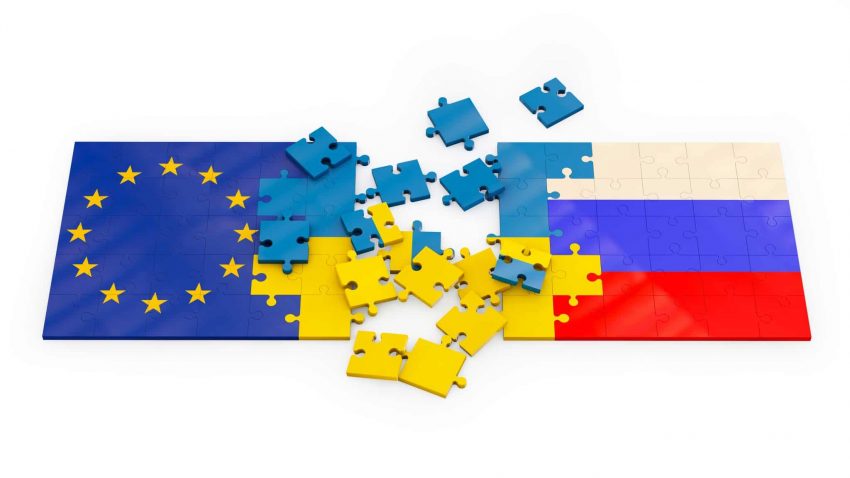Luc Brunet – 18 March 2014
Some more thoughts about the Ukrainian crisis, after the referendum in Crimea and the expected integration of the region into the Russian Federation.
To start with, let’s consider the regular outraged claims that the referendum is illegal. What is the jurisdiction stating about the legal or illegal status of a referendum for independence? Looking at the traditional constitutional right, the question is relevant within the stable constituency of a state only. Typically we can argue pros and cons about the right of Scotland or Cataluña to initiate a referendum and declare independence, as the country it belongs to is operating normally. The same applied to Kosovo, as a matter of fact. However, if a revolution takes place in the country, it implies a suspension or cancellation of the current constitution, and in such a case it is generally recognized that regions in disagreement with the new rulers have the right to secede.
A revolution being what happened in Kiev end of February (while the application of the 21st February agreement would not be qualified as a revolution), it is legitimate for Crimea or any other region of Ukraine to secede. Russia and the EU/US call the events a revolution and agree on that point, and all should agree on the implications of such an event. Principles should be applied systematically – if there was no revolution, then Yanukovich is the only legal president, and so on.
But we should expect other developments in the south east of the country, and a lot can still happen before the planned elections in Kiev in May.
Why is Moscow acting so decisively on the issue? I believe the reason is simple: a NATO adhesion of Ukraine is simply the red line that Moscow shall not allow, whatever the cost. The Ukrainian border is too close to Moscow and would make the capital city too vulnerable to a preemptive nuclear or even conventional attack. Looking at the reaction of President Kennedy (not really a bully like Putin, right?) to the installation of Soviet missiles in Cuba in the 60’s gives an idea of the situation in Russia now and its reaction.
After years of concessions from the Russian side, after the ignored offer of Mikhail Gorbachev to suppress both NATO and Warsaw Pact to create a common European “Home”, then the several times violated commitment by the west after German re-unification not to expend NATO to the East, after the unwillingness to reach compromises in Kosovo, Libya, Syria, the red line is now in Ukraine.
As in the previous cases, a real negotiation with Russia never took place. On Ukraine, both Russia and the EU proposed economic support on exclusive basis, putting Ukraine in front of a mandatory choice – EU or Russia, while the only choice for Ukraine should be EU and Russia.
European voters should be really concerned. What their leaders are announcing is the signature of an agreement with a lot of political and economic consequences with a provisional government including suspicious members – is it a responsible behavior? Who shall pay the price for the agreement? Shall the Ukraine be the next paradise for German companies, providing qualified labor for less than Chinese salaries, starting a new boom of jobs delocalization to the east? What about a referendum in Europe asking what people think about it?
Ukrainians voters should be really concerned. Do they know that their industry shall be made obsolete in months and close down after Russia stops buying their products and the EU declares them unfit? Do they know that social benefits shall be cut (in fact already are) and poverty shall be a major issue very soon? Do they know that two Parties in their government are close to the fascist extreme right and that such parties, once in power, rarely leave it until pushed out by force? Do they really think that EU banking and industrial lobbies shall allow their countries to put sanctions on Russia that may put their investment and customer base in Russia at risk?
Talking about sanctions. The first results of the EU rhetoric about sanctioning Russia have first results :
- the ruble devaluated, without intervention of the Russian Central Bank. The result is a competitive devaluation (a la French style in the 70’s) that shall allow for a stimulation of the economy at a time of slow down. Just what was needed. But voluntary devaluations are very unpopular, and in this case Putin can say that he is not the one responsible!
- risk of freeze of Russian assets by the west generated an outflow of Russian owned capital out of the US and the EU. Although some may have gone to Switzerland or Singapore, it means the sanctions are on the way to succeed where Putin did not succeed over the past 15 years: stop capital outflow and bring Russian capital back home
- part of the repatriated capital has gone buying back shares of Russian flagship industrial groups at a very discounted price after western investors fled in panic!
Let’s History write the next chapters.
